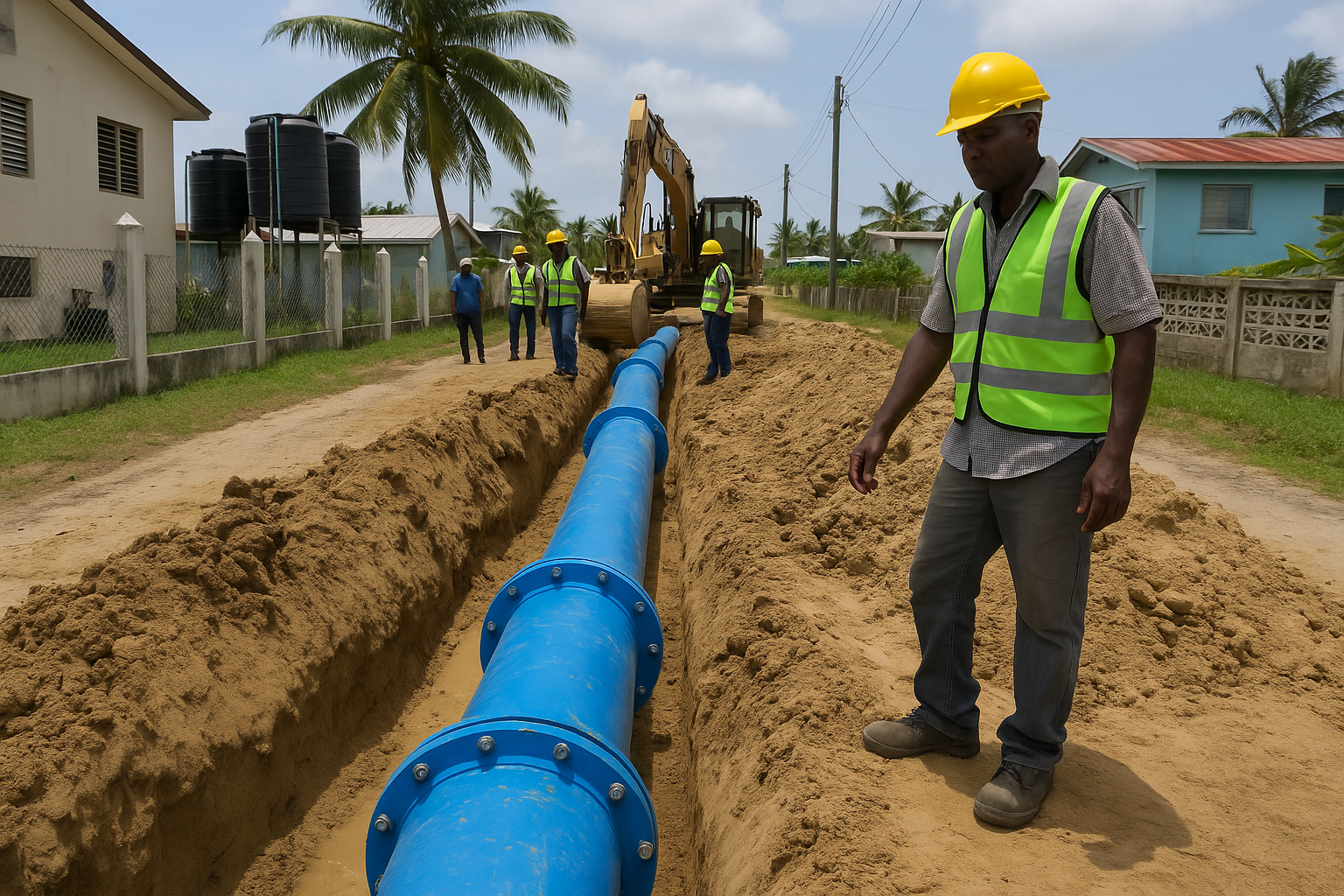Govt Declares War on Water Mafia Sabotaging SA’s Infrastructure and Rights
“These activities not only cripple infrastructure but also endanger public health, inflate municipal budgets, and obstruct national development goals,” Mahlobo warned.

- Country:
- South Africa
In a resounding condemnation of mounting threats to South Africa’s water supply networks, Deputy Minister of Water and Sanitation David Mahlobo has reaffirmed the government’s unwavering commitment to eradicating the growing scourge of water infrastructure sabotage and criminal syndicates—commonly referred to as the “water mafia.”
Mahlobo was speaking during a national webinar hosted by the South African Human Rights Commission (SAHRC), titled "Sabotage of Essential Water Infrastructure and Water Mafias: What Can Be Done?". The Deputy Minister labelled these attacks on water systems as acts of economic sabotage that rob vulnerable communities of their dignity and violate the constitutional right to access clean water.
A Coordinated Assault on Development and Human Rights
Mahlobo highlighted how well-organised criminal networks, often colluding with rogue insiders, are deliberately targeting and damaging water infrastructure components—including pump stations, pipelines, cables, valves, and meters—with the aim of profiting from the resulting chaos. These syndicates then illegally sell water via tanker services at exorbitant prices to desperate communities.
“These activities not only cripple infrastructure but also endanger public health, inflate municipal budgets, and obstruct national development goals,” Mahlobo warned.
He emphasized that these criminal acts affect both urban and rural areas, disrupting already fragile water supply systems and exacerbating service delivery backlogs. The growing prevalence of such operations has led to prolonged water outages, rising repair costs, and a climate of fear in affected municipalities.
Closing the Space for Criminal Activity
The Deputy Minister issued a stern warning to those behind the destruction and extortion:
“We will not tolerate the deliberate sabotage of our water infrastructure. These are not just criminal acts—they are direct attacks on our constitutional democracy and our commitment to human rights.”
Mahlobo stressed that government is escalating collaboration with law enforcement, including the Hawks and SAPS, to identify, investigate, and prosecute individuals and networks involved in these activities. Multi-sectoral task teams are being activated to coordinate rapid responses and long-term infrastructure resilience.
National Response Strategy: From Indaba Resolutions to Tech-Driven Safeguards
The government’s action plan is underpinned by outcomes of the 2025 National Water and Sanitation Indaba, which prioritised infrastructure security, public awareness, and stronger institutional responses. Key measures include:
-
Deployment of advanced technology such as surveillance cameras, remote sensors, and smart monitoring systems to detect and deter sabotage
-
Public education campaigns to build awareness and community resilience
-
Infrastructure protection protocols embedded in municipal service delivery frameworks
-
Expanded whistleblower support mechanisms to protect citizens who report corruption and criminality
“We are closing the space for criminals to operate. We will pursue them relentlessly through law enforcement, community mobilisation and the full weight of State institutions,” said Mahlobo.
Communities on the Frontline: Call for Vigilance and Whistleblowing
Mahlobo underscored the vital role of community vigilance in confronting the water mafia. He urged citizens to take ownership of their public resources by:
-
Reporting suspicious activity to local authorities
-
Participating in educational programmes and anti-vandalism campaigns
-
Supporting whistleblowers who expose internal collusion and theft
-
Forming community forums to protect local infrastructure
“We cannot protect our water infrastructure alone. Communities are the first line of defence, and every citizen must play a role in safeguarding this essential resource.”
He also called on civil society, trade unions, water activists, environmentalists, and traditional leaders to stand united against those who destroy national assets for personal gain.
Water Access: A Non-Negotiable Constitutional Right
At the heart of government’s strategy is the firm belief that water is a human right, not a commodity to be exploited by criminals. The Deputy Minister reiterated that no syndicate or extortionist operation would be allowed to deny South Africans their access to water.
“Water is life, and no criminal syndicate will be allowed to hijack the public’s right to it. We are acting decisively, and we urge every South African to be part of the solution,” Mahlobo said.
He concluded with a powerful appeal for national solidarity:
“We must defend this resource together. Through strong partnerships, community vigilance and courageous whistleblowing, we will protect our water and secure our future.”
Looking Forward
As South Africa intensifies its battle against the water mafia, the success of these efforts will depend not only on policing and prosecution, but also on a unified front of public awareness, political will, technological innovation, and community action.
The message is clear: sabotage will not be tolerated, and access to water must remain sacred.










